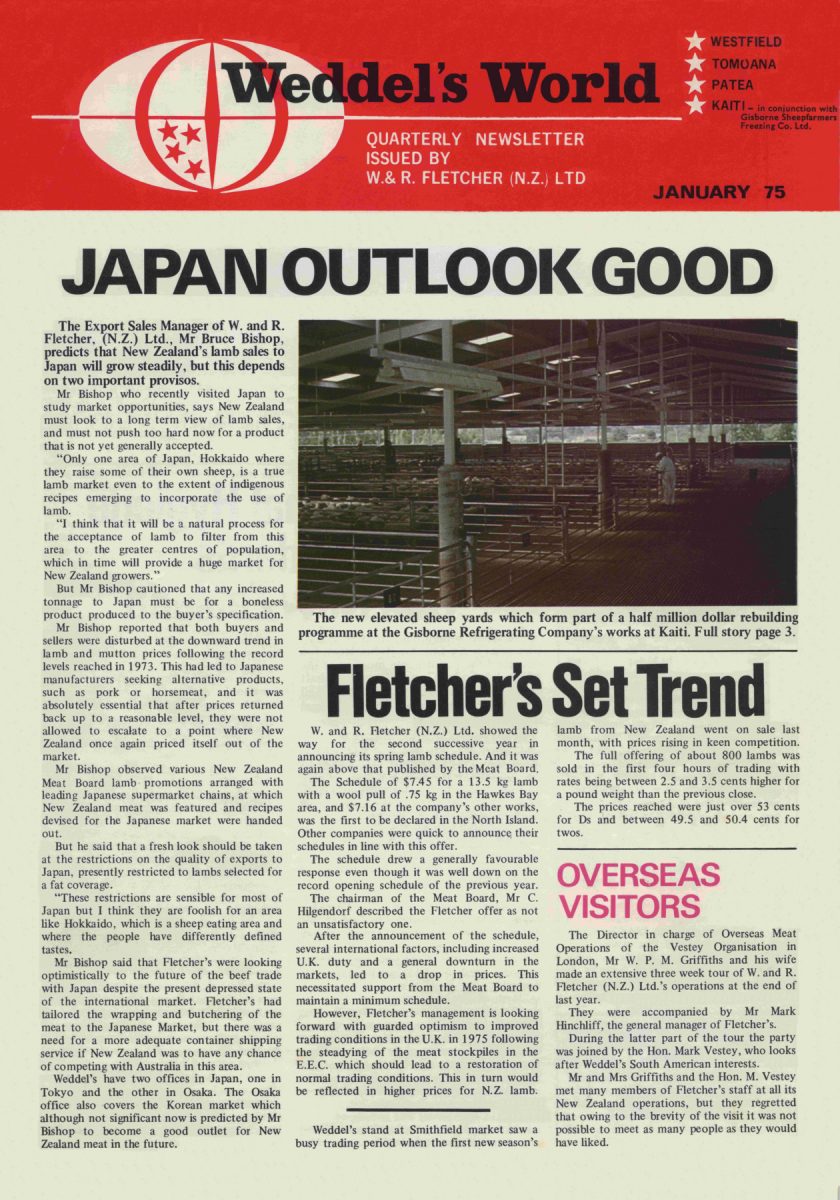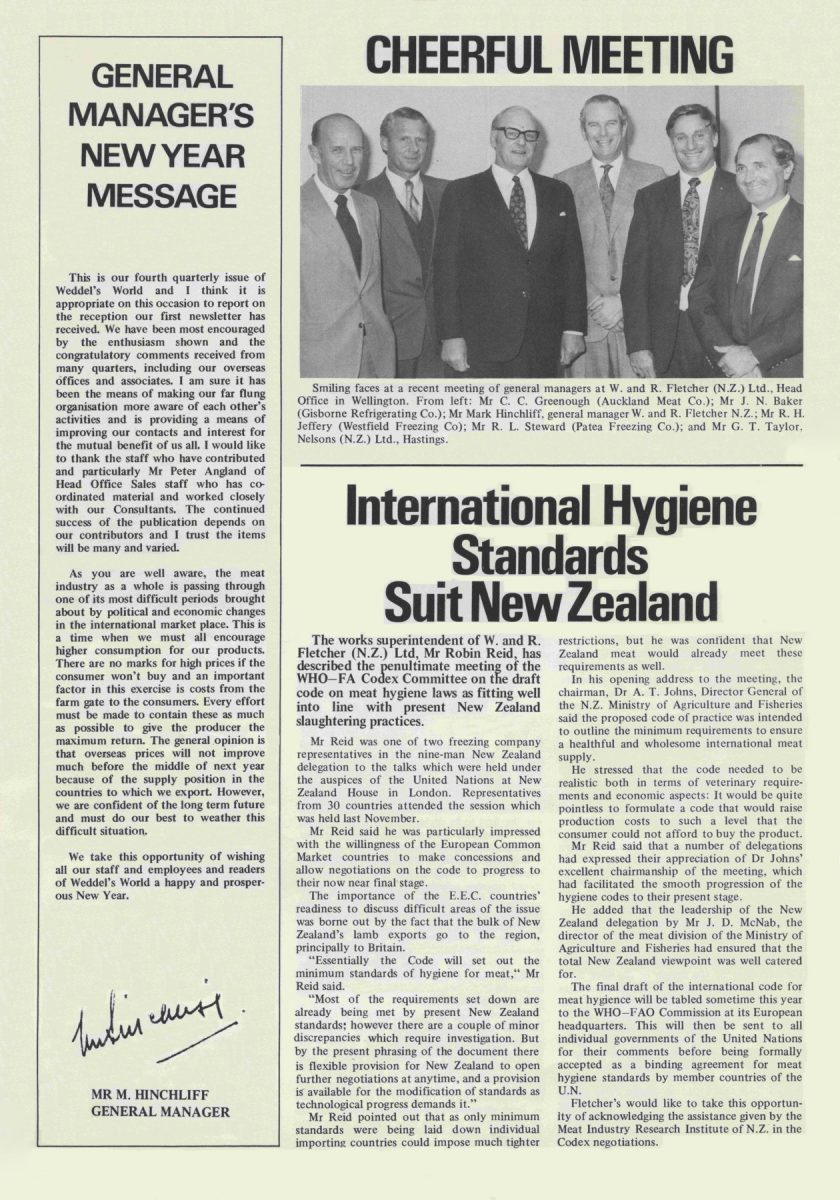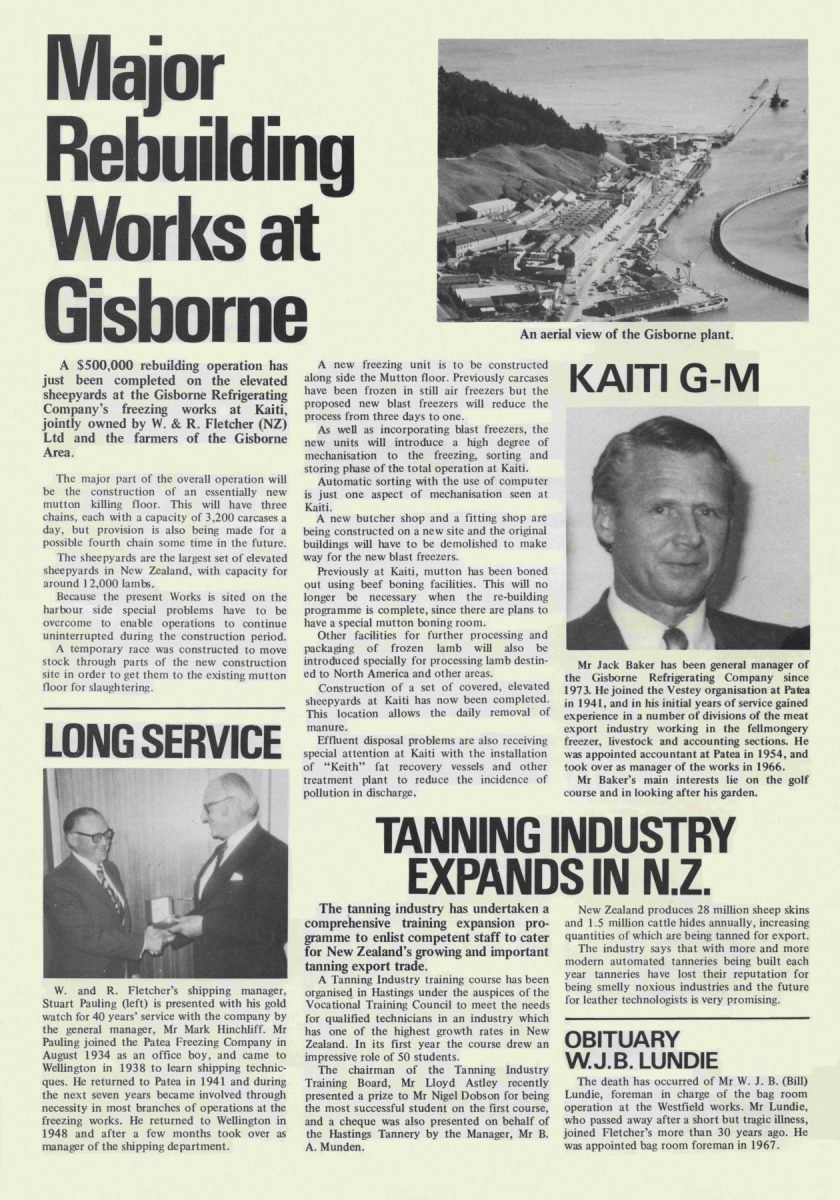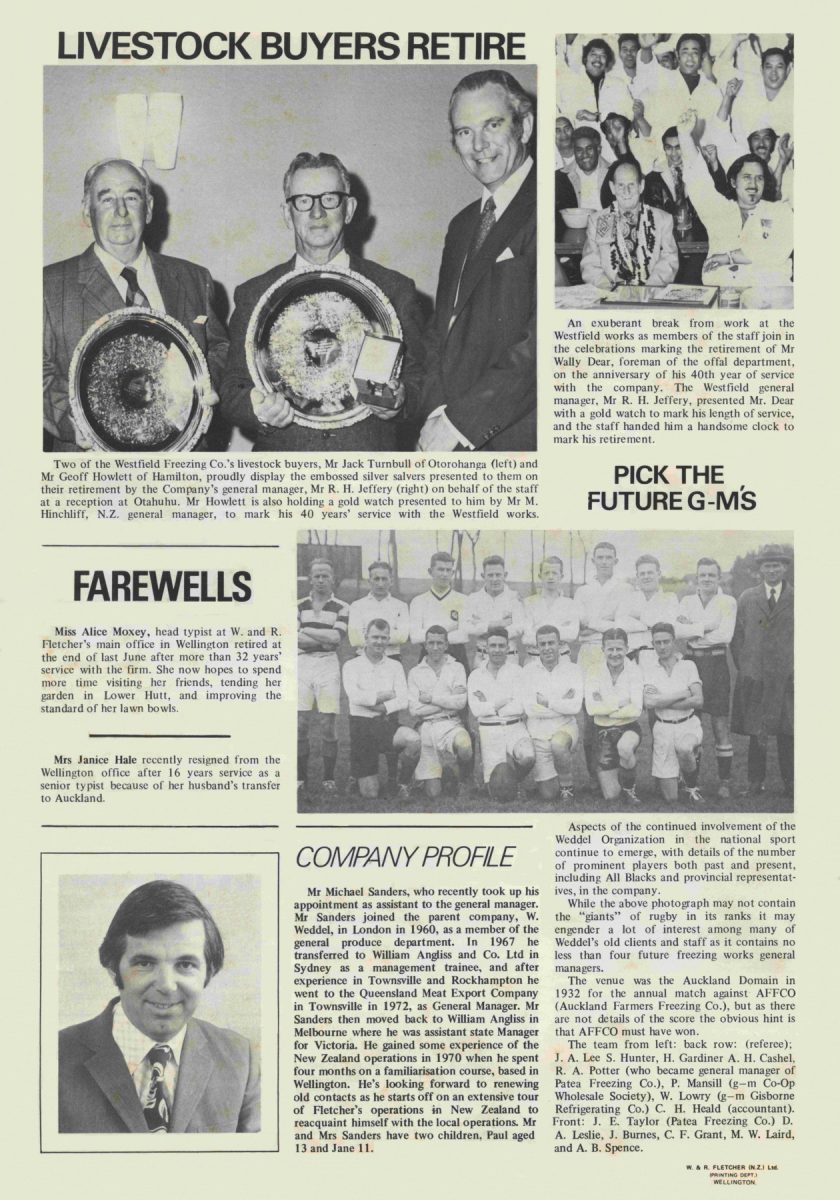Weddel’s World
WESTFIELD
TOMOANA
PATEA
KAITI – in conjunction with Gisborne Sheepfarmers Freezing Co. Ltd.
QUARTERLY NEWSLETTER
ISSUED BY
W.& R. FLETCHER (N.Z.) LTD
JANUARY 75
JAPAN OUTLOOK GOOD
The Export Sales Manager of W. and R. Fletcher, (N.Z.) Ltd., Mr Bruce Bishop, predicts that New Zealand’s lamb sales to Japan will grow steadily, but this depends on two important provisos.
Mr Bishop who recently visited Japan to study market opportunities, says New Zealand must look to a long term view of lamb sales, and must not push too hard now for a product that is not yet generally accepted.
“Only one area of Japan, Hokkaido where they raise some of their own sheep, is a true lamb market even to the extent of indigenous recipes emerging to incorporate the use of lamb.
“I think that it will be a natural process for the acceptance of lamb to filter from this area to the greater centres of population, which in time will provide a huge market for New Zealand growers.”
But Mr Bishop cautioned that any increased tonnage to Japan must be for a boneless product produced to the buyer’s specification.
Mr Bishop reported that both buyers and sellers were disturbed at the downward trend in lamb and mutton prices following the record levels reached in 1973. This had led to Japanese manufacturers seeking alternative products, such as pork or horsemeat, and it was absolutely essential that after prices returned back up to a reasonable level, they were not allowed to escalate to a point where New Zealand once again priced itself out of the market.
Mr Bishop observed various New Zealand Meat Board lamb promotions arranged with leading Japanese supermarket chains, at which New Zealand meat was featured and recipes devised for the Japanese market were handed out.
But he said that a fresh look should be taken at the restrictions on the quality of exports to Japan, presently restricted to lambs selected for a fat coverage.
“These restrictions are sensible for most of Japan but I think they are foolish for an area like Hokkaido, which is a sheep eating area and where the people have differently defined tastes.
Mr Bishop said that Fletcher’s were looking optimistically to the future of the beef trade with Japan despite the present depressed state of the international market. Fletcher’s had tailored the wrapping and butchering of the meat to the Japanese Market, but there was a need for a more adequate container shipping service if New Zealand was to have any chance of competing with Australia in this area.
Weddel’s have two offices in Japan, one in Tokyo and the other in Osaka. The Osaka office also covers the Korean market which although not significant now is predicted by Mr Bishop to become a good outlet for New Zealand meat in the future.
Fletcher’s Set Trend
W. and R. Fletcher (N.Z.) Ltd. showed the way for the second successive year in announcing its spring lamb schedule. And it was again above that published by the Meat Board.
The Schedule of $7.45 for a 13.5 kg lamb with a wool pull of .75 kg in the Hawkes Bay area, and $7.16 at the company’s other works, was the first to be declared in the North Island. Other companies were quick to announce their schedules in line with this offer.
The schedule drew a generally favourable response even though it was well down on the record opening schedule of the previous year.
The chairman of the Meat Board, Mr C. Hilgendorf described the Fletcher offer as not an unsatisfactory one.
After the announcement of the schedule, several international factors, including increased U.K. duty and a general downturn in the markets, led to a drop in prices. This necessitated support from the Meat Board to maintain a minimum schedule.
However, Fletcher’s management is looking forward with guarded optimism to improved trading conditions in the U.K. in 1975 following the steadying of the meat stockpiles in the E.E.C. which should lead to a restoration of normal trading conditions. This in turn would be reflected in higher prices for N.Z. lamb.
Weddel’s stand at Smithfield market saw a busy trading period when the first new season’s lamb from New Zealand went on sale last month, with prices rising in keen competition.
The full offering of about 800 lambs was sold in the first four hours of trading with rates being between 2.5 and 3.5 cents higher for a pound weight than the previous close.
The prices reached were just over 53 cents for Ds and between 49.5 and 50.4 cents for twos.
OVERSEAS VISITORS
The Director in charge of Overseas Meat Operations of the Vestey Organisation in London, Mr W. P. M. Griffiths and his wife made an extensive three week tour of W. and R. Fletcher (N.Z.) Ltd.’s operations at the end of last year.
They were accompanied by Mr Mark Hinchliff, the general manager of Fletcher’s.
During the latter part of the tour the party was joined by the Hon. Mark Vestey, who looks after Weddel’s South American interests.
Mr and Mrs Griffiths and the Hon. M. Vestey met many members of Fletcher’s staff at all its New Zealand operations, but they regretted that owing to the brevity of the visit it was not possible to meet as many people as they would have liked.
Photo caption – The new elevated sheep yards which form part of a half million dollar rebuilding programme at the Gisborne Refrigerating Company’s works at Kaiti. Full story page 3.















Do you know something about this record?
Please note we cannot verify the accuracy of any information posted by the community.